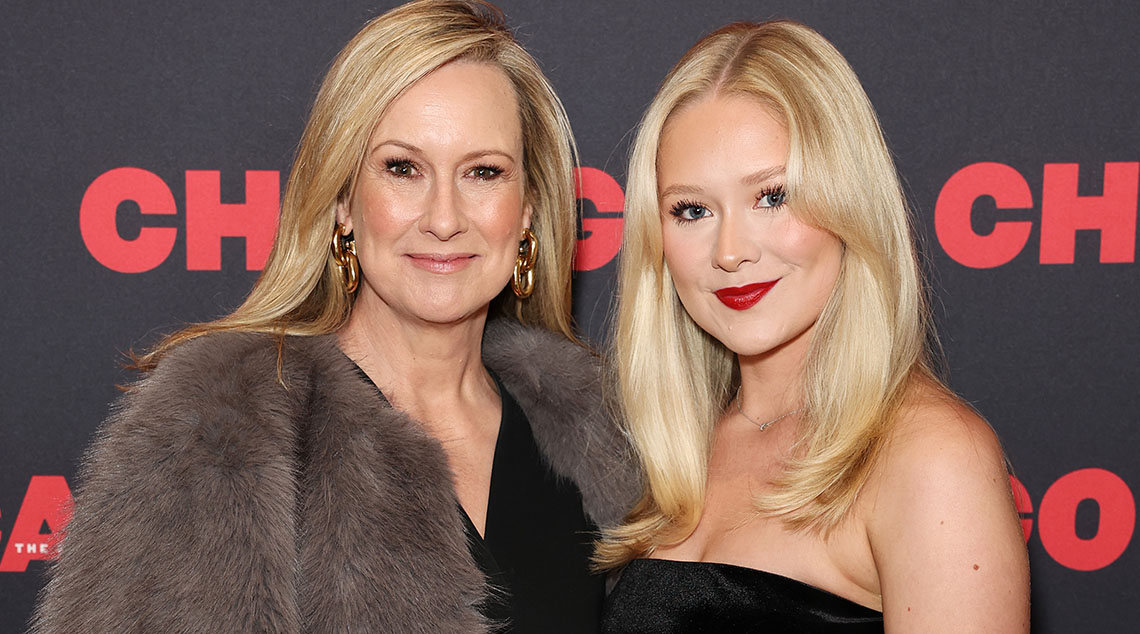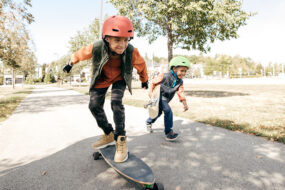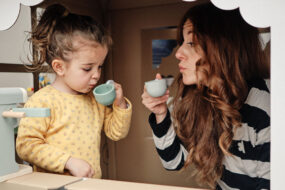Why presenter Melissa Doyle wants people to age against the machine
A lot of us fear getting older, but TV and radio presenter Melissa Doyle says it is time to flip the narrative and look forward to our senior years.
TV and radio presenter Melissa Doyle has a map of the world on a wall at home — an exciting reminder of adventures to come.
She is 54, but you won’t hear her moan about getting older.
Rather, the journalist and author is determined to approach her next chapter with positivity — and is on a mission for us all to do the same.
“As I was approaching my 50th birthday I had a number of people ask me how I felt about it, as though I’d feel any different to 49,” says Melissa, who co-authored How to Age Against the Machine with friend Naima Brown.
“I felt grateful!” she recalls.
“I’m not ready for the alternative. Ageing is a privilege. It got me thinking about the significance of milestone birthdays and how we feel about them.
“Why, after 50, are we not as excited with getting older and all the wonderful things that brings with it? Why is ageing not celebrated more? Why is wisdom not embraced?”
Ageing gracefully
From health experts and seniors groups promoting healthy ageing to rock stars and Hollywood actors blasting use-by dates, a rising chorus of voices is pushing to change the narrative on ageing.
In Australia, we are living longer than ever, with a life expectancy of 81.3 for men and 85.4 for women.
But a National Seniors Australia report says about 50 per cent of us only feel “somewhat prepared” for our later years.
So, how can we embrace ageing rather than fear it?
Redefining the narrative
While healthy lifestyles are linked to healthy ageing, our mindset can also make a big difference.
One US study of 660 people aged at least 50 found those with more positive self-perceptions of ageing lived 7.5 years longer than those who focused on the negative aspects of getting older.
Professor Tim Windsor, director of the Generations Research Initiative at Flinders University, says recognising there is potential to age in a healthy way “puts us in a good position to curate our lives”.
“If we believe that growing older is associated with predominantly losses and limitations, we may fail to invest in the things that will promote good health,” Prof Windsor says.
“We might think that loss is inevitable, whereas there’s a great deal of variability in the way that people age. Some people maintain excellent health and fitness right into very late life.”
He notes surrounding ourselves with friends and finding a sense of purpose, such as volunteering, looking after grandchildren and joining social groups, can also contribute to longevity.
He adds “self-directed” ageism can be a barrier to enjoying our twilight years and curtail what we are capable of.
“That arises from the fact that from very early in life we were exposed to negative stereotypes about ageing.
It’s important to recognise that one of the great triumphs of the last 100 years has been this significantly increasing life expectancy. People are living longer and more healthily than ever before.”
Busting age-old cliches
National Seniors Australia head of research Dr Diane Hosking says throwing out the welcome mat to older people in every area of life — such as the workforce, volunteering and community groups — is crucial.
Seniors don’t necessarily want to join groups with other seniors (think bowls and bingo), nor are they all technophobes (80 per cent of the organisation’s members are online) or craving a quiet retirement.
“Age is not the defining factor of who someone is,” Dr Hosking says.
“Being able to mix with different generations in a working environment, in a social environment, is beneficial to people of every age.
“It’s really important that all generations see older people being visible in the community and contributing, to start changing these stereotypes.”
Melissa is inspired by how elders are celebrated in different cultures, such as the queen mother in Ghana, who she interviewed, who guides young women.
“I’d love us all to look a little more closely at what different age groups can teach us — both older and younger,” Melissa says.
“A quote I love is: ‘My kids might have to help me with the printer, but I taught them to use a knife and fork.’”
More on ageing gracefully:
- 9 things to start doing if you want to be happier
- Is your make-up ageing you? Beauty tips for mature skin
- No-limits ageing: Mid-life motivation from senior female surfers
- Transformative lessons for each stage of life
Written by Elissa Doherty





